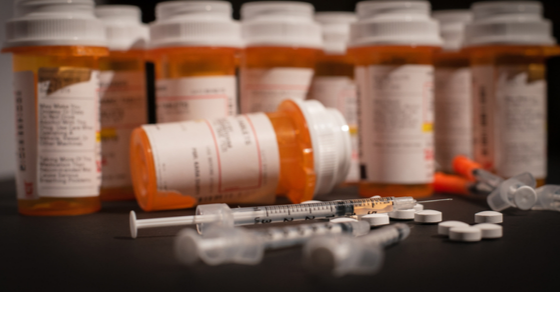Excerpt: “For every 1,000 people who lost their jobs in a county there was a 2.7% rise in opioid-related overdose deaths. After fentanyl entered regional heroin supplies in 2013, the same 1,000 trade-related job losses led to an 11.3% spike in overdose deaths.”
The Sackler family was once celebrated for its philanthropy. Now the owners of Purdue Pharma are vilified daily as egregious contributors to the U.S. opioid epidemic, which has shattered so many lives. It’s now time to look more closely at the contributions of another praised institution: free trade. Free-trade policies are routinely credited for spurring economic growth, but they have also helped determine when and where Americans die of opioid overdoses.
[Adam Dean and Simeon Kimmel | October 8, 2019 | Stat]
The companies and individuals that “addicted America” should be held liable — but their misdeeds don’t explain why some groups and regions have been devastated by the opioid crisis while others are nearly unscathed.
Since 2000, more than 60,000 U.S. factories have closed, as import competition and outsourcing eliminated more than 2 million well-paid manufacturing jobs. Although the narrative is that many of these shuttered factories are in the Midwest, the worst-hit region is Appalachia, which is also experiencing the worst drug crisis in American history.
advertisement
The death rate from overdoses is now 65% higher in Appalachia than in the rest of the country. Economists Anne Case and Angus Deaton found that less-educated white males are dying from drugs, alcohol, and suicide at such high rates that the group’s life expectancy is now declining. They call these “deaths of despair.”
The trade crisis and the opioid crisis feed on each other. Economists have explained how free trade lowers wages and employment levels for less-educated manufacturing workers in the U.S. Relatively good jobs with high wages and benefits are disappearing, while factory closings damage the social fabric of their surrounding communities.
Free trade policies hit Appalachia, a region of 420 counties across 14 states, especially hard. The region accounts for only 8% of the United States population but suffered 16% of all trade-related job losses over the past 20 years.
Hickory, N.C., for example, was once the furniture capital of the world. A wave of cheap imports in the late 1990s and early 2000s wiped out 11,000 manufacturing jobs; the surrounding county now has one of the nation’s highest rates of opioid overdose deaths.
To examine the connection between trade policies and opioid deaths, we analyzed county-level data from both the Department of Labor and the Centers for Disease Control and Prevention. As we wrote in the journal SSM ‑ Population Health, for every 1,000 people who lost their jobs in a county there was a 2.7% rise in opioid-related overdose deaths. After fentanyl entered regional heroin supplies in 2013, the same 1,000 trade-related job losses led to an 11.3% spike in overdose deaths.
Statistics are complicated. We can’t say for sure that job losses are killing people. Yet it seems likely that there’s a relationship. Economists at Yale and the Federal Reserve Board showed a similar relationship between imports from China and overdose deaths. There is growing evidence that economic and social upheaval fundamentally fuel the opioid crisis.
President Trump’s attacks on free trade were a key part of the message behind his victory in 2016, and will also shape the 2020 presidential election. During the recent Democratic primary debates, most candidates attacked Trump’s trade war because they said it lacked a clear strategy. Most of them, however, supported the administration’s high tariffs.
Instead of this mixed message, Democrats should forcefully criticize the failures of both the Trump administration’s policies and the American approach to free trade. The administration’s tariffs do little for communities that were already devastated by trade-related job losses. And rather than increase welfare spending in these areas, the administration in 2018 cut by 7% the only federal program that provides benefits to workers who lose their jobs due to trade — Trade Adjustment Assistance.
The Trump administration recently announced $1.8 billion in federal funds for addiction prevention and treatment, but lacks a comprehensive plan to address the crisis and continues to fight against supervised injection sites that have been shown to reduce overdose deaths in Canada, Australia, and Europe.
Tariffs won’t fix the causes of economic despair in the parts of the country that have been ravaged by opioids. They may raise wages for some workers and prevent future layoffs, but they won’t fix broken communities or aid people suffering from opioid use disorder.
To make an immediate dent in the overdose crisis, we need to increase access to health insurance and evidence-based treatment programs. Naloxone rescue kits reverse overdoses, and teaching people how to use them can save lives. For people who have previously overdosed, treatment with methadone or buprenorphine decreases mortality by 50%.
At the very least, the U.S. government should provide such targeted health care programs in communities hurt by trade but ignored by Trump’s trade war.
Read the original article here.













